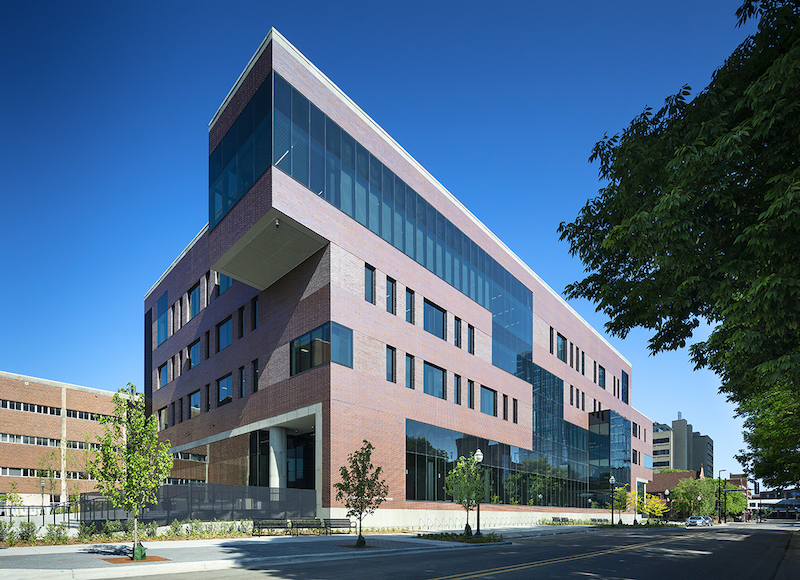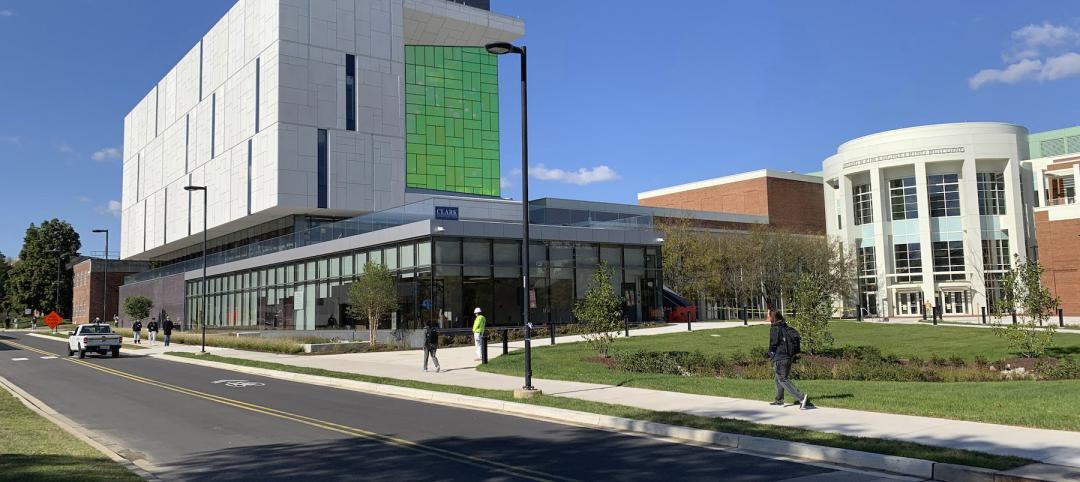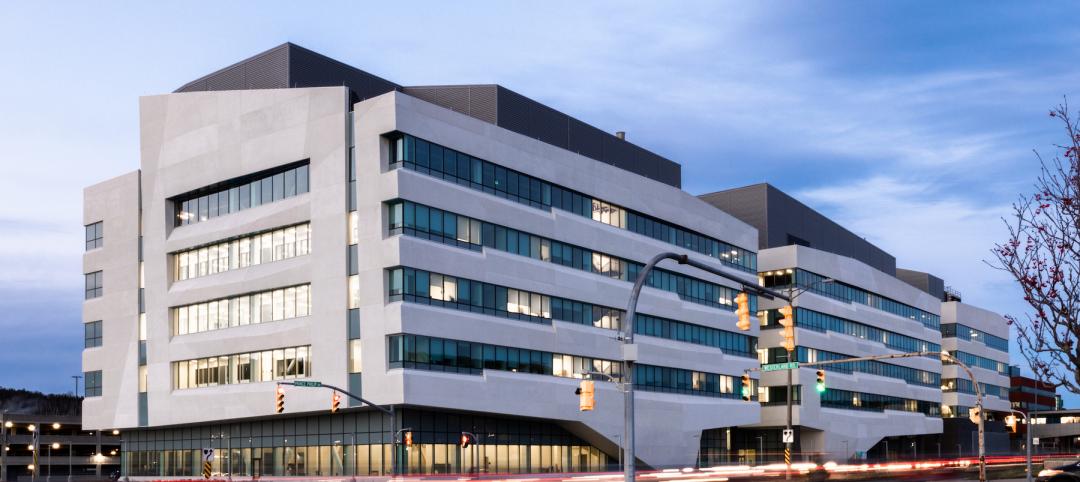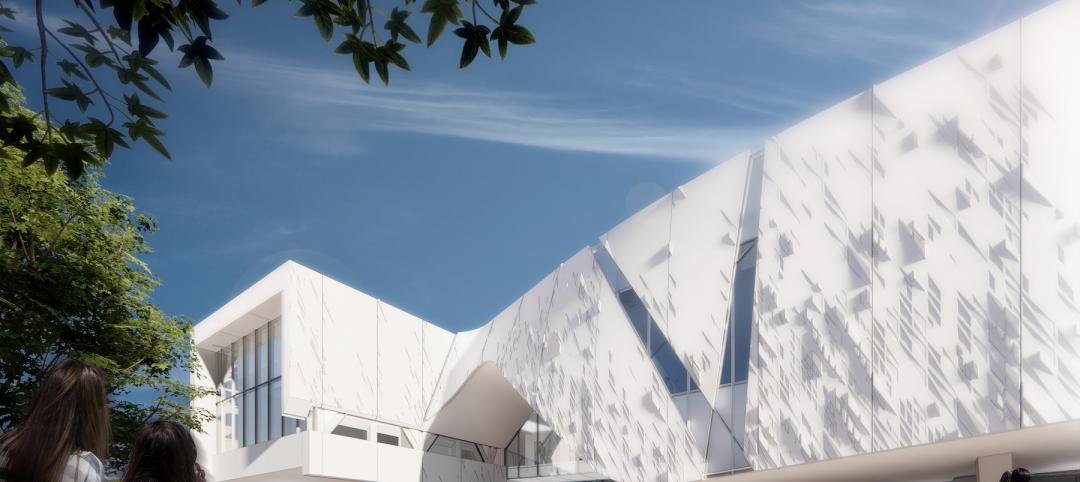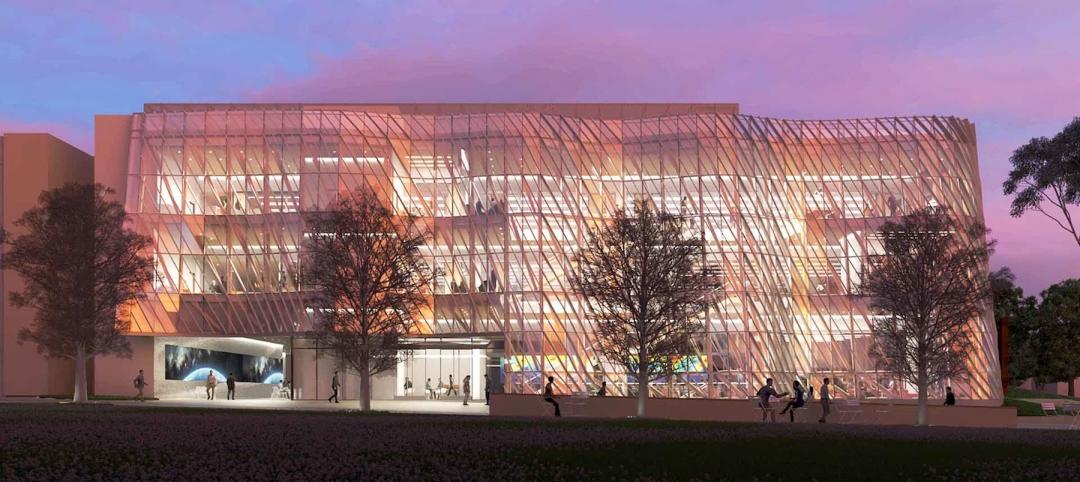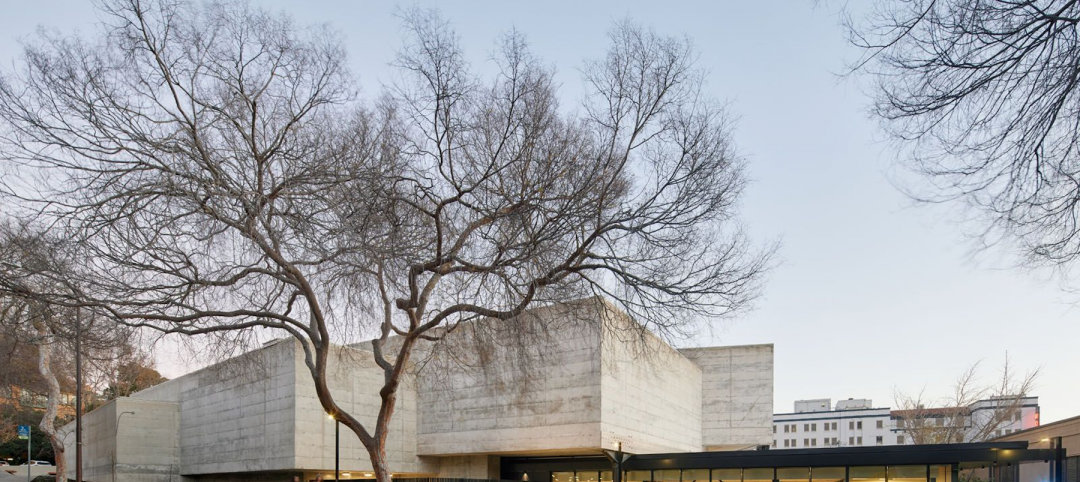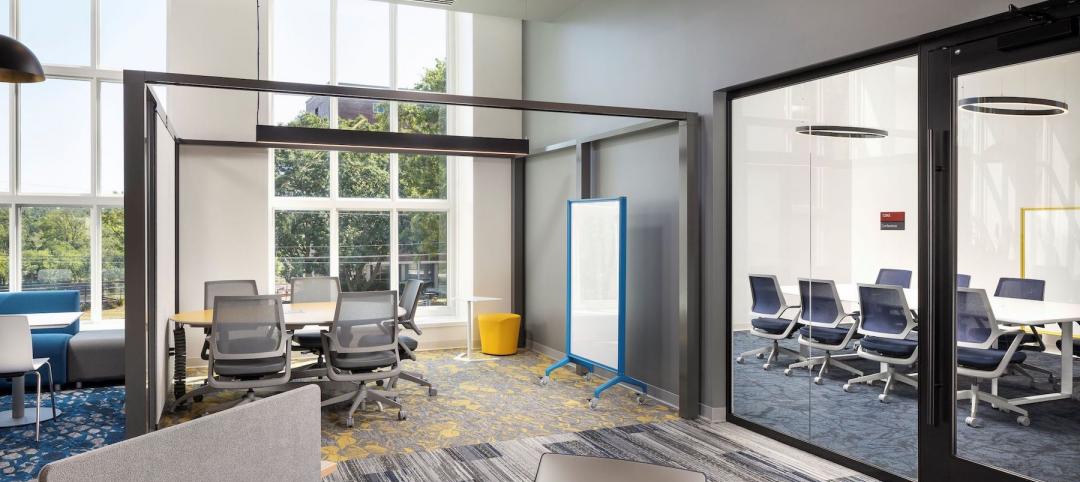The University of Minnesota alumni account for more than 70% of that state’s health professionals. To help prepare the next generation, the university’s Twin Cities campus recently debuted its Health Sciences Education Center, a hub for UM’s health professional schools, and designed to promote interprofessional education and interaction that prioritizes student and faculty well-being.
The 202,000-sf Education Center is positioned to be one of the more comprehensive interprofessional facilities in the country. The project entailed six stories of new construction, and four stories of renovation of an adjacent building. The two structures are connected by portals on four floors.
“The new Health Sciences Education Center is much more than a building; it is a catalyst for change as we prepare the next generation of health care professionals,” says Mark Rosenberg, MD, Vice Dean for education and academic affairs in the Medical School.
Early examples of the Center’s multipurpose utility and transformative potential were evident last summer, when HSEC was used in collaboration with the School of Public Health, Medical School and the Medical Reserve Corps to assist the Minnesota Department of Health in COVID-19 contact tracing. M Simulation—a university team that designs and delivers training experiences for health science students and other stakeholders—also used HSEC’s spaces to train incoming residents and students on personal protective equipment in clinical environments.
REAL-LIFE TRAINING IS PART OF PROGRAMMING
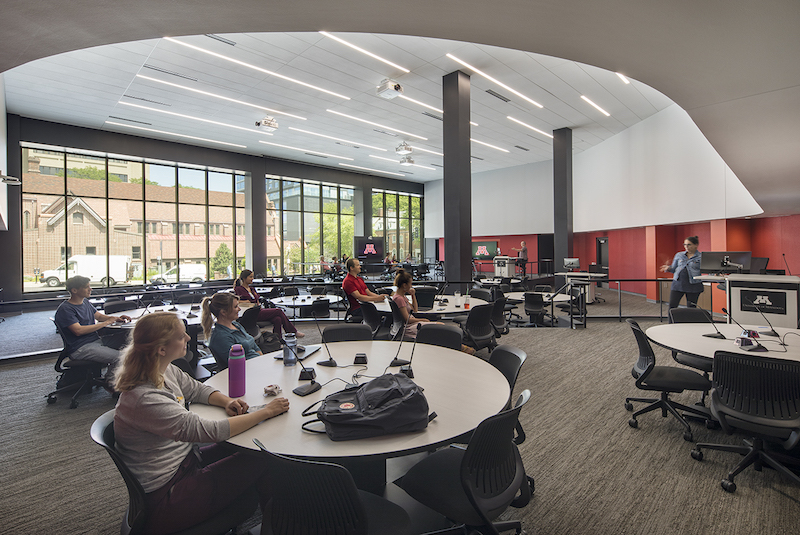
The new HSEC has space for small and large group learning and instruction. Images: Lara Swimmer
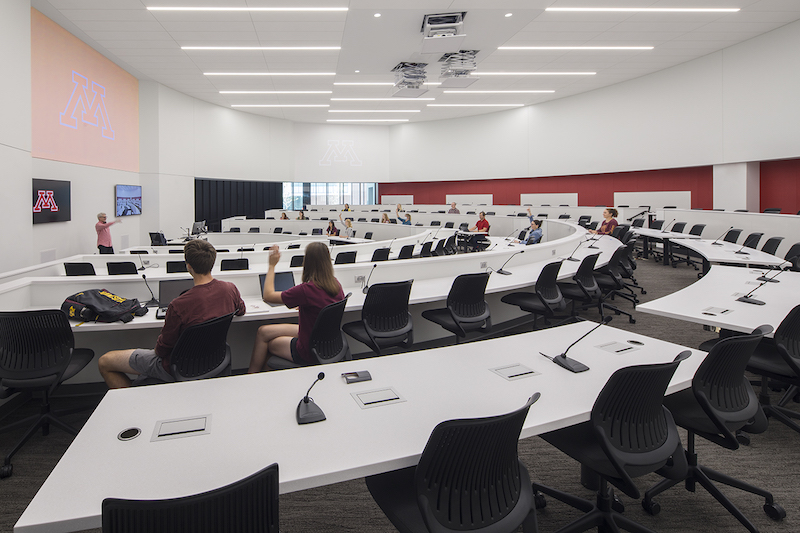
The new HSEC includes:
Center for Health Interprofessional Programs, which connects health professions students from varying disciplines, allowing them to collaborate, network, socialize, and learn;
Biomedical Library and Wangensteen Historical Library of Biology and Medicine, which connects students to healthcare’s history and opportunities for invention and product development that might define the industry’s future, including a makerspace and virtual reality studio;
Simulation Labs on two floors that connect students to the patient experience and the reality of working alongside their interdisciplinary peers. Jakub Tolar, Dean of UM’s Medical School and Vice President of its Office of Academic Clinical Affairs, explains that these labs help prepare students for real-life medical events and crisis, for which “you have to train yourself, almost like an athlete.”
The S/L/A/M Collaborative and Perkins and Will were co-design architects on HSEC. SLAM led this project’s program validation, utilization analysis, building planning, and the documentation of all classrooms, immersive learning environments, and administrative spaces. Perkins and Will, as AOR, provided the exterior and massing design, interior finishes and furniture selection, and public/social space documentation. The Building Team included JE Dunn (GC), IMEG (MEPF), Palanisami & Associates (SE), EVS Inc. (CE), and Sextant (AV consultant).
IN WITH THE NEW
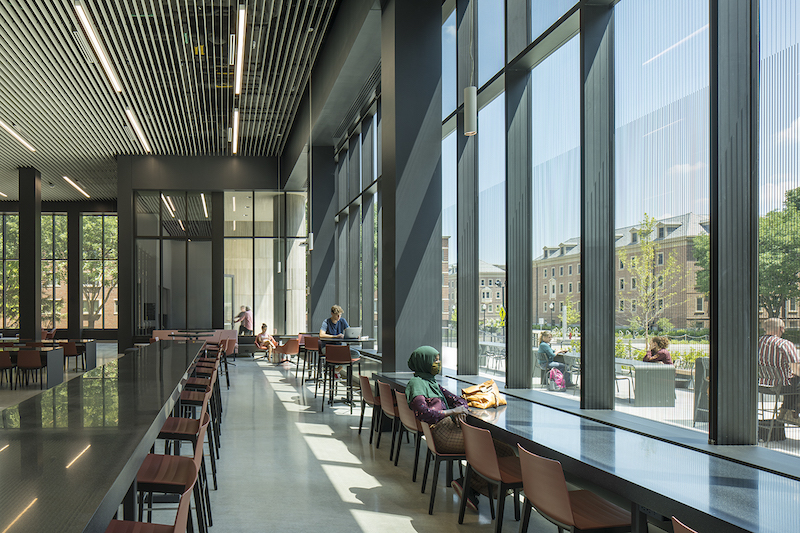
The building's lobbies (above) have lots of seating and natural light. The Center's library features makerspaces and virtual studios. Images: Lara Swimmer, SLAM
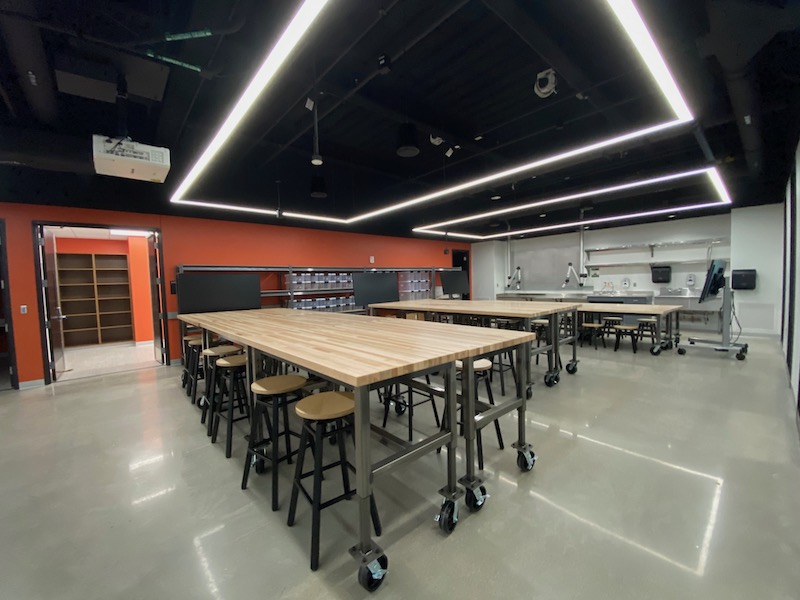
HSEC, which broke ground in February 2018, replaces a four-story brick structure, called the VFW Cancer Research Center and Masonic Memorial Building, that was completed in 1957. The renovated space in the Phillips Wangersteen Building replaces underutilized clinics.
The State of Minnesota invested $66.7 million in construction as part of its 2017 special session bonding bill. The University, along with support from donors, funded an additional $33.3 million in construction costs. Predesign and design from reallocated TCF Bank Stadium bond proceeds totaled $8.6 million. The total cost of the project is $108.6 million, according to the university.
Related Stories
University Buildings | Jun 9, 2022
IDEA Factory at U. of Maryland defies gravity
The E.A. Fernandez IDEA Factory at the University of Maryland’s A. James Clark School of Engineering has a gravity-defying form: The seven-story building’s solid upper floors emerge above the lighter, mostly glass base.
University Buildings | Jun 7, 2022
Newfoundland university STEM building emulates natural elements, local traditions
Memorial University of Newfoundland (MUN) recently opened a new building that will provide interdisciplinary learning and research space for Faculties of Science and Engineering.
Museums | May 31, 2022
University of Texas at Dallas breaks ground on new 12-acre cultural district
The University of Texas at Dallas (UT Dallas) recently broke ground on the Crow Museum of Asian Art, the first phase of a new 12-acre cultural district on campus.
Building Team | May 20, 2022
Caltech breaks ground on a new center to study climate and sustainability
The California Institute of Technology (Caltech) recently broke ground on its Resnick Sustainability Resource Center.
Laboratories | May 20, 2022
Brutalist former Berkeley Art Museum transformed into modern life science lab
After extensive renovation and an addition, the former Berkeley Art Museum and Pacific Film Archive at the University of California, Berkeley campus reopened in May 2022 as a modern life science lab building.
Sports and Recreational Facilities | May 19, 2022
Northern Arizona University opens a new training center for its student athletes
In Flagstaff, Ariz. Northern Arizona University (NAU) has opened its new Student-Athlete High Performance Center.
University Buildings | May 16, 2022
Yale’s newly renovated Schwarzman Center enriches student campus social life
Robert A.M. Stern Architects (RAMSA) recently unveiled the design of their restoration of the Schwarzman Center at Yale University, which includes dining spaces, a bar, and a food shop.
School Construction | May 11, 2022
New Digital Learning Commons at Rutgers supports doctoral programs in over 16 disciplines
The new Digital Learning Commons at the Rutgers University Archibald S. Alexander Library provides students in over 16 courses of study and four professional schools with spacious collaborative and study space.
Sponsored | BD+C University Course | May 10, 2022
Designing smarter places of learning
This course explains the how structural steel building systems are suited to construction of education facilities.
Performing Arts Centers | May 10, 2022
A historic performance space is transformed to reinforce a campus’ Arts District
Connecticut College’s Athey Center for Performance and Research at Palmer Auditorium balances the old and new.


